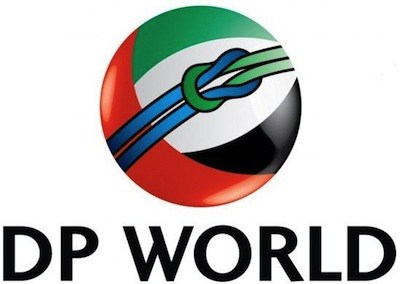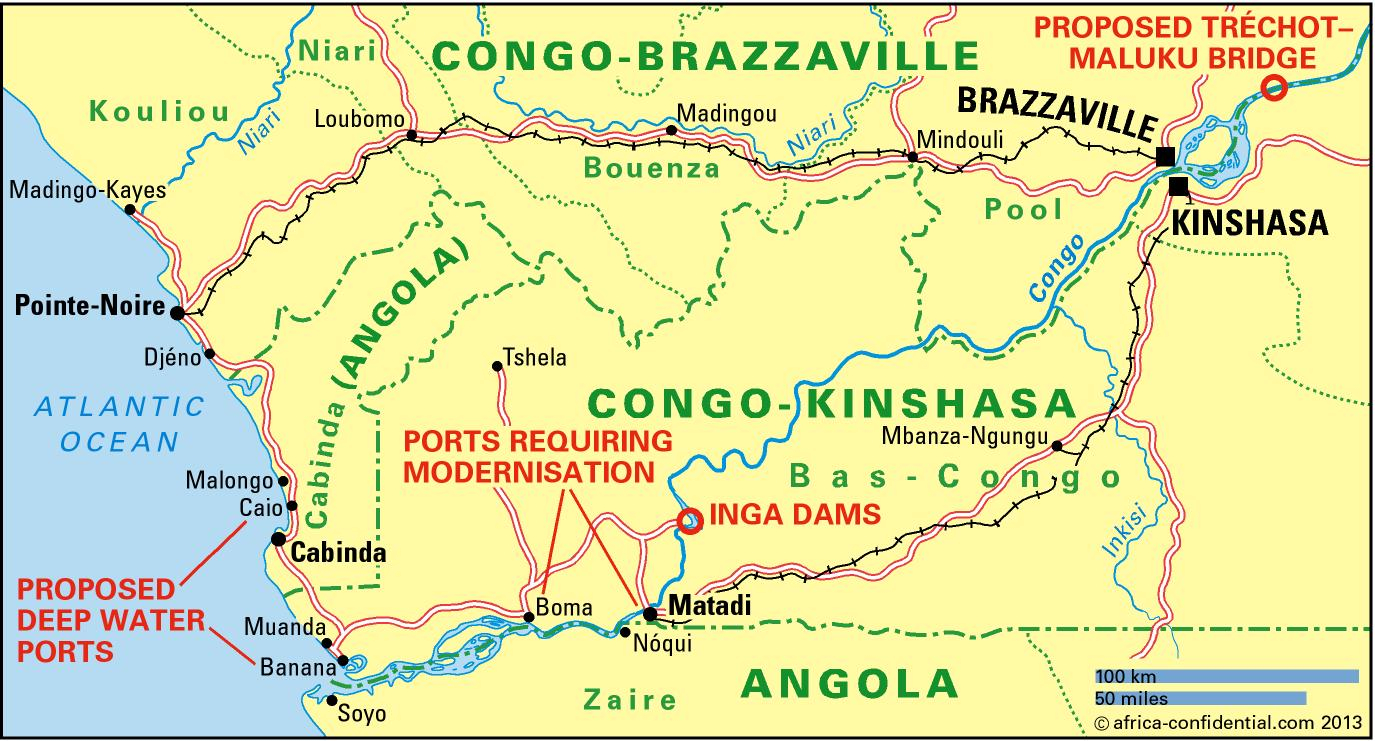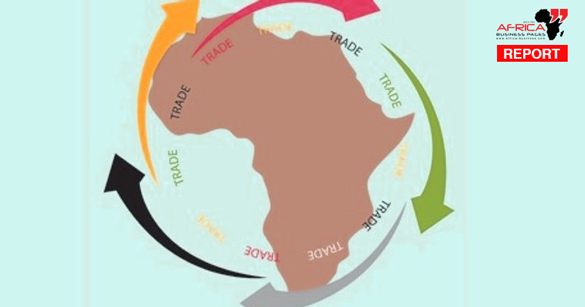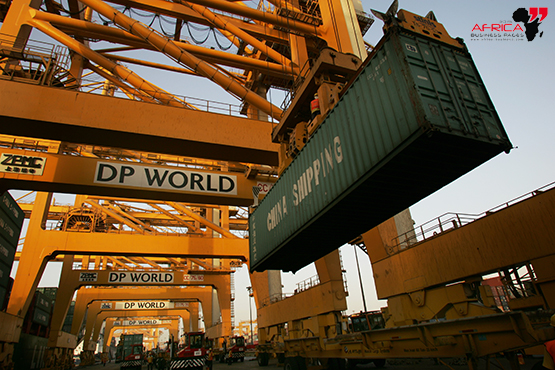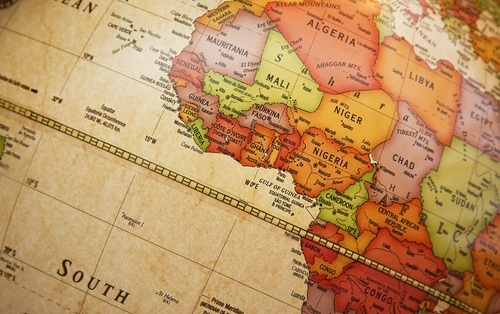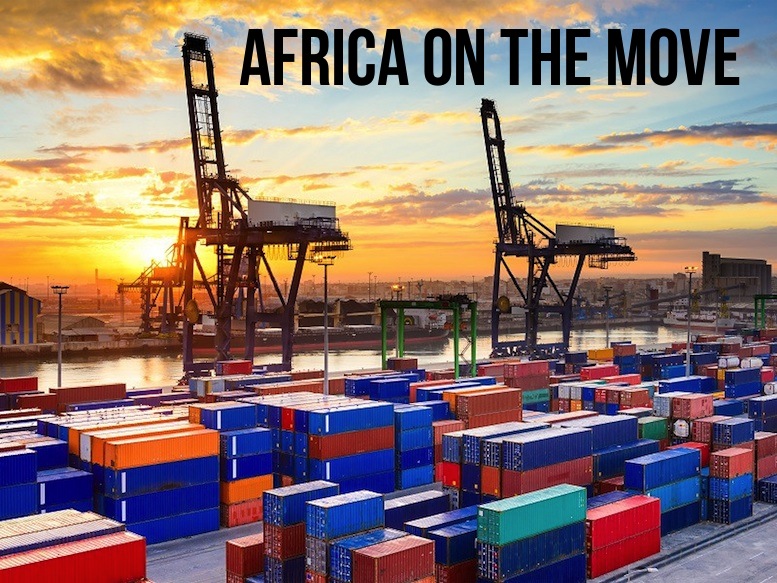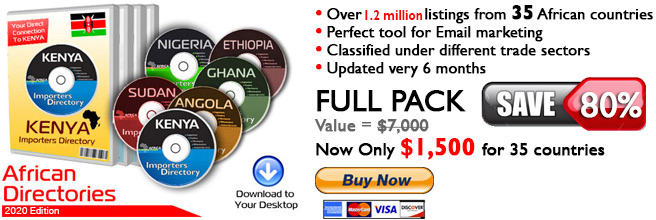Top 10 Imports of Africa
Africa has emerged as an attractive market for export-oriented companies and manufacturers across the world as demand for consumer and capital goods in Africa has been growing at a steady pace in the last few years. The emergence of an affluent middle-class with disposable incomes in many African companies has contributed largely in the increased trade to Africa.
If you are targeting the African buyers in new and emerging African markets, here is a list of 10 major African imports based on current Africa import and export statistics:
Automobiles
The automobile industry provides innumerable lucrative opportunities in this rapidly growing continent. The high rate of economic growth and urbanization has led to a subsequent rise in income levels. This implies that more and more people are now able to purchase vehicles both for personal and commercial purposes as they move from low income status and into the upwardly mobile middle class.
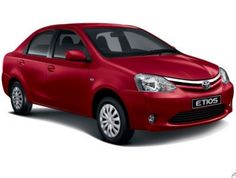 However, the continent boasts very little output in terms of automobile manufacture. Additionally, the major import firms in Africa focus their business on high-end buyers who are in a position to afford expensive, brand new vehicle models. This leaves a gap in the market for inexpensive used vehicles for the bigger percentage of buyers.
However, the continent boasts very little output in terms of automobile manufacture. Additionally, the major import firms in Africa focus their business on high-end buyers who are in a position to afford expensive, brand new vehicle models. This leaves a gap in the market for inexpensive used vehicles for the bigger percentage of buyers.
For a long time, Japan and Korea dominated this niché market but in more recent years, the US and China are also making inroads to grab a piece of the pie. The market is still ripe and opportunities are endless considering the fact that the percentage of vehicle ownership is still very low in most African markets.
Computers and other IT Products
Another vastly unexploited export opportunity to Africa is in the sale of IT products. This has largely been the result of an ongoing computerization trend that has taken a hold throughout the continent. Even though there a few manufacturers of IT equipment in Africa, they have been unable to keep up with the level of demand in the market and as a result most traders are forced to import.
 Africa has one of the highest rates of growth in the market for IT products worldwide. As a result, multi-national manufacturers have concentrated their efforts on the market, producing in great quantities items specifically targeting the African market.
Africa has one of the highest rates of growth in the market for IT products worldwide. As a result, multi-national manufacturers have concentrated their efforts on the market, producing in great quantities items specifically targeting the African market.
South Africa’s computer market for instance is valued at more than $1 billion. One of the factors behind the growth in the sector is the fact that many organizations are changing from the traditional desktops to the more personal and portable laptops and ultra-books. Furthermore, the rapid pace at which innovations are being introduced to the sector and the inversely proportional price reductions have also boosted demand.
The UAE has the lion’s share of this market thanks to its strategic position relative to the African continent that implies low transportation costs. Furthermore, the regulatory requirements governing the trade over both countries have served to favour the cycles of demand and supply. There is very high competition in the IT business in this region and as a result, the prices are rated among the cheapest globally.
Automobile Spare Parts
Most of the African buyers are buying substantial quantities of automotive batteries, tyres, spare parts, ball bearings, water pumps and a host of automobile spare parts from overseas markets for selling them at a profit in their own countries.
In addition to automobile spare parts, a major import to many African countries in recent years has been tyres, batteries and lubricants.
Clothing and Fashion Accessories
The fashion and textile industry provides another booming opportunity for export to Africa. New imported clothes have gained popularity as a status symbol and are a reserve of the continent’s wealth. In a bid to keep up with the ever evolving trends in the fashion world they do not spare a dime in purchasing the most exclusive labels from the world’s top fashion hotspots.
Countries like China provide cheaper options of clothing for the general populace by taking advantage of its high levels of industrialization as well as the availability of cheap labor in the production process.
Secondhand clothes are also in great demand in Africa amongst the low-income earners. The United States is the largest used clothing exporter globally selling almost $700 million annually – a large portion of which is exported to Africa.
However, the used clothing business has encountered its share of challenges with some African countries planning to ban the importation of used clothes.
Pharmaceuticals
The world is ever in search of more affordable drugs and Africa is no exception to this rule. Healthcare is a big concern with a majority of Africans who are unable to afford  expensive medical care. Moreover, there is a huge gap in the demand and supply chain as African does not have any major bulk manufacturers of pharmaceuticals.
expensive medical care. Moreover, there is a huge gap in the demand and supply chain as African does not have any major bulk manufacturers of pharmaceuticals.
Pharmaceutical products constitute a big bulk of Indian exports to Africa. This is largely due to the fact that India has emerged as one of the world’s biggest manufacturing hubs for generic drugs India's pharmaceuticals trade with Africa is worth over $17 billion annually.
Mobile Phones
The African mobile revolution has taken the world by storm with the continent having the second biggest market for mobile devices after China. Africa has more mobile device users than land lines. By 2020, the number of devices in use in the African continent is projected to reach about 1.8 billion.
Subsequently, the sale of mobile phones has been on a consistent rise every year with the figures soaring to unimaginable levels as manufacturers consistently introduce improved models into the market. Considering that the current use of mobile phones mostly centers on making calls and sending short messages, the figures are expected to continue rising as the cost of using the internet becomes lower in most African countries.
For the past five years, the annual rate at which the number of mobile users increases has been about 65%. This makes Africa the ideal market for international traders looking to secure viable export opportunities in Africa.
Nigeria is once again the continent’s leader in the mobile handset market followed closely by South Africa. However, even in less developed war-torn countries like Somalia the mobile telecoms industry continues to thrive.
Mobile money platforms have particularly made a significant contribution to this growth by offering most of the services that were previously the reserve of banking institutions. The huge unbanked population in the continent now enjoys these features from the convenience of their mobile handsets. There is still so much potential for growth in this market creating an ideal investment opportunity for exporters.
Stationery
Enterprising traders have found a large market for stationery items in Africa. This rise in demand has been a result of the increased number of academic institutions and the importance African attach to education. Since there is a shortage in the manufacturing capabilities for these products, the demand for stationery in Africa is being met by overseas companies.
Dubai has come to the fore as one of the most reliable suppliers in this sector giving competitive prices and a suitable environment for import export trade.
Foodstuff
While Africa was once a major exporter of agricultural products to other countries, there are a number of factors that have created a turn of events and it now accounts for a  huge market share of the food importation market. These include the ever-expanding population, poor infrastructure, mismanagement of local agricultural industries, and the emergence of the middle class. While this may spell doom for its population, it is the best news an international trader would want to hear.
huge market share of the food importation market. These include the ever-expanding population, poor infrastructure, mismanagement of local agricultural industries, and the emergence of the middle class. While this may spell doom for its population, it is the best news an international trader would want to hear.
With the middle-class expected to continue growing, the African food import market is bound to continue to grow for a while since there is a shortage on laborers to work in the agricultural sector. As always, Nigeria and South Africa take the lead in the region’s top importers and together with Angola, they account for almost half of all the imports made into the continent.
Electronics
The African market has not yet been able to achieve self-sustenance in the electronics sector and relies on external players in the industry to fill its growing need for home appliances and electronics.
Electronic products from Asia have gained increasing popularity in the African markets thanks to their well-equipped production and assembly facilities as well as competitive pricing. Unlike European and American manufacturers, Asian manufacturers have easy access to electronic components and hence are able to provide cheaper prices.
Machinery & Engineering Products
Africa lacks the strong and diversified base that is necessary for the production of most engineering products. These refer to all materials needed for the manufacturing of other products. They form the base for such strong manufacturing countries as China and India and have turned these into the biggest exporters of the products into Africa.
This is another important product on the list of items that can be imported into Nigeria by virtue of the dynamic nature and rapid rate of urbanization of the country. It has therefore worked out favorable bilateral trade agreements with these major manufacturers in order to maximize the opportunities for trade.
Chemicals
The demand for chemicals in the African market has exceeded its supply capabilities by far. The current rate of industrial growth and the general demand for products by its growing population necessitates the importation of these products.
The agricultural sector is one of the areas of the African economy that has created a great need for the products. There is a growing trend in the use of modern agricultural methods that utilize organic chemicals to a greater degree than ever before. The cosmetics industry is also growing rapidly and there is increased need for raw material to manufacture soap, colognes, make up and various toiletries.
How to Penetrate the African Market
Reaching the right African buyers is a challenge for most international companies. The dearth of information and the unorganised nature of business in many African countries is indeed a challenge for those wanting to export to Africa.
Buy the African Importers Database
Africa Business Pages, the leading B2B portal connecting African buyers to international suppliers since 1996, has compiled a database of African companies. The database 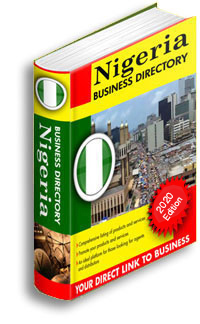 of African importers has helped many international companies identify potential business partners in new and emerging markets in Africa. Available for download from Africa Business Pages, the database of African companies lists importers in Africa and is available for download in excel format at https://importers.africa-business.com.
of African importers has helped many international companies identify potential business partners in new and emerging markets in Africa. Available for download from Africa Business Pages, the database of African companies lists importers in Africa and is available for download in excel format at https://importers.africa-business.com.
Featured Listing on Africa Business Pages
Many international companies have been able to find buyers in the African markets by listing their companies in dedicated African B2B portals like the Africa Business Pages. By listing your company under the relevant trade sector, many global suppliers have been able to generate useful sales leads from African importers.
Advertise in Africa - Print & Digital Marketing in Africa
Advertising has always been the preferred medium for reputed manufacturers, traders and suppliers to reach their target audiences around the world. By advertising in print magazines like Africa Business Pages you can get your company noticed amongst African buyers and importers.
Digital marketing plans offered by Africa Business Pages have also been producing good results for advertisers. The digital marketing plan includes Email marketing to African buyers, banner advertising, content marketing, lead generation, business matchmaking as well as social media advertising.












